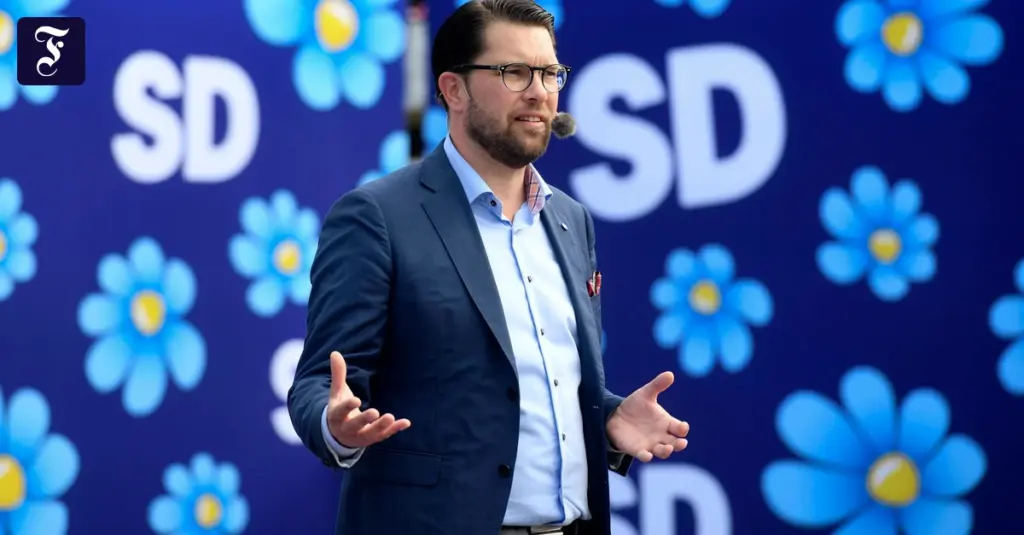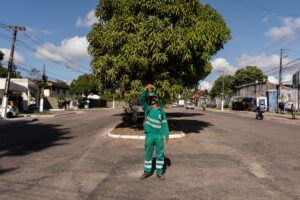
The Nordic countries are sometimes seen as a model of normalization in dealing with right-wing populists. In Finland, right-wing populist groups are part of the government coalition; In Sweden they actually rule together. There, the Sweden Democrats are still officially part of the opposition, but they tolerate a bourgeois minority government consisting of moderates, liberals and Christian Democrats.
The four parties have agreed to an agreement (the Tidö Agreement) that provides strict measures, especially in the areas of immigration and internal security. These measures were largely due to the Sweden Democrats, which was the stronger of the three parties in the minority government.
Less than a year before the next parliamentary elections, Sweden’s construction is now heading towards distortions. After the election, the Sweden Democrats are aiming for full normalization as well as ministerial positions.
The Prime Minister appeared at the Sweden Democrats party conference
The party’s chairman, Jimmie Åkesson, said at a party conference at the weekend that he supports forming a majority government in the bourgeois camp. His party and the moderate group will form the “natural core” of the next government.
The leader of the Moderates, Swedish Prime Minister Ulf Kristersson, appeared with Åkesson that day. This is the first time a moderate party leader has attended the Sweden Democrats party conference. Kristersson thanked everyone for what they had achieved together so far, “for the hard work in the Reichstag” and for the “excellent cooperation”. This is just the beginning.
On the same day, Kristersson also appeared at a conference of the Liberal party, the smallest partner in his coalition – which could lead to a post-election blowout. Because liberals refuse to agree to an alliance of which right-wing populist groups are a formal part.
The Liberal Party got just three percent in opinion polls
Over the weekend, the party decided to go into opposition rather than support a government made up of the Sweden Democrats. At the same time, representatives of the Liberal Party openly announced that they wanted to continue their cooperation after the elections.
Environment Minister Romina Pourmokhtari, who is a member of the Liberal Party, also practices this balancing act. On the one hand, he accused the Swedish Democratic Party of being irresponsible. According to Pourmokhtari, their representatives undermined Sweden’s rapid accession to NATO by inciting Koran burners and thereby provoking Türkiye’s rejection. At the same time, he said that voters had the right to choose from the right without this causing the Sweden Democrats to participate in the government.
Formal rejection of right-wing populist groups, coupled with very smooth cooperation, has not produced results for liberal groups. Currently their number is only about three percent in surveys, so they will not be able to return to the Reichstag.
If the Liberal Party is expelled from parliament, the other two remaining government parties will probably not have much difficulty in reaching an agreement with the Sweden Democrats. Current surveys show that they would then do this as junior partners. The impact may be much stricter immigration policies.
This was expressed at the weekend by Denice Westberg, chair of “Young Swedes”, the youth association of the Swedish Democratic Party. “Someone must have the courage to say this: Islam has no place in Sweden,” he said. He later told broadcaster SVT that he felt “you cannot come here and expect to be allowed to practice a religion that often goes against our Swedish values.”





